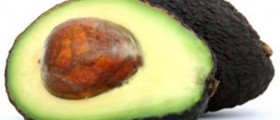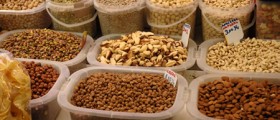
Carbohydrates, also known as carbs, are sugars, starches and fibers found and absorbed from most of the foods. The main role of carbohydrates is to provide the human body with energy, essential for living. Carbohydrates are responsible for 40 to 45 percent of the energy supply for the human body. However, carbs have many other important functions in the body, such as regulation of digestion, supporting communication between cells and maintaining immune functions.
Types of carbohydrates
Carbohydrates are often divided in two principle groups. The first group consists of the so called "simple carbohydrates", composed of carbon, hydrogen, and oxygen and arranged into small units called sugars or monosaccharides. Simple carbohydrates are responsible for the sweet taste of our foods and they are sometimes referred to as "simple sugars".
The other groups are "complex carbohydrates", composed of larger carbohydrate molecules. Fibers and starches, for example, are composed of at least twenty monosaccharides arranged together. These large carbohydrates are therefore called polysaccharides.
The Simple Sugars: Monosaccharides
Monosaccharides are composed of one sugar unit only so that they can be absorbed into the body almost immediately after ingestion. Monosaccharides are, for example, glucose, fructose and glactose. Monosaccharides do not require being broken down during the process of digestion. This means that when humans consume foods rich in simple sugars, the sugar quickly gets into the bloodstream, increases the blood sugar levels and instantly restores the energy. Foods such as ripe fruit and honey are rich in simple sugars. A side effect associated with too much of these simple sugars is that they cause a large increase of blood sugar, followed by a rapid drop. As a result, person often feels tired, shaky and confused. Frequent rapid fluctuations in blood sugar levels may even provoke serious health conditions such as diabetes or hypoglycemia.
The Simple Sugars: Disaccharides
Disaccharides are composed of two monosaccharides and they have similar effect to the human body as monosaccharides. Disaccharides, however, require some level of digestion with the assistance of particular digestive enzyme. Examples of disaccharides include milk sugar (lactose), table sugar (sucrose), and sugars formed from the breakdown of starch (maltose and isomaltose).
The Polysaccharides: Starch
Polysaccharides are composed from a long complex of several hundred to several thousand sugar molecules. These carbohydrates must breakdown before they can be digested. This is why the digestion of starch takes longer and provides an extended source of energy. Starch provides balanced and prolonged elevation of blood sugar and it is much better for the health than the simple sugars. Examples of starches are foods like corn or potatoes.
The Polysaccharides: Fiber
Dietary fibers are also polysaccharides and are therefore considered complex carbohydrates. Dietary fibers differ from other types of carbohydrates because the sugar units in them are arranged in such a way that human body cannot digest them. This does not mean that fibers do not have any nutritional value to humans. On the contrary, fibers travel through the digestive system and help to maintain normal functions of the intestinal tract. Fiber helps to support the health by reducing constipation and promoting the excretion of toxins and waste. Good sources of fiber are vegetables, grains, legumes and whole foods.









_f_280x120.jpg)







Your thoughts on this
Loading...